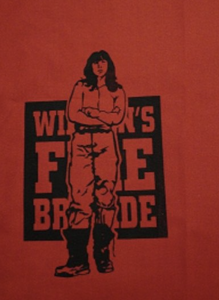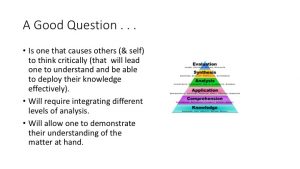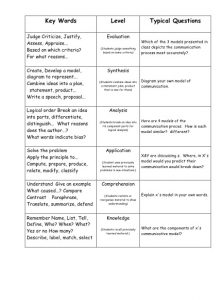Where is ‘The Field?’
Anthropologists do their research in ‘the field.’ This is to set it apart from where we write up our research results. That is we make a distinction between where and when we conduct our research and the place and time within which we write up our findings. In recent decades this fairly simplistic distinction between field and home has become complicated by critique (Geertz 1988), advances in information technology, and changes in research practices. Nonetheless, practicing anthropologists still refer to their place of research as the ‘field’ and what we do in the field as ‘fieldwork.’
My impressions and observations of many years of research in the Bigoudennie (an area within Brittany, France) are recorded in notebooks, files and in the photos I took during my time in there. Glancing through my family photo albums I see the passage of many years in Brittany recorded from the perspective of the everyday life of a family. These photos mark the events, trips, birthdays, guests, anniversaries and other everyday moments of parenthood and family. The place, that is to say the “field-site,” enters this record as glimpses of landscape and blurred backgrounds against which the normal life of a family progresses. Later photos, taken on return visits, tend to capture reunions with friends in their homes.
My experience being in the Bigoudennie is overwritten by my experience as a father and as a partner to my spouse. We attended the public-school festival like the other parents. Some sunny afternoons we might pile into our car and take a picnic on the beach, along some nearby lakeshore or in a neighboring wood. On my way home from the daily commercial fish auction I often stopped to pick up a few things at the supermarket or bakery. These are not earth-shattering events. They are part of a family life, which continues irrespective of whether or not one is in France, Canada, the United States, or elsewhere.
One of our early arrivals in Brittany is captured in a series of pictures of my sons, playing on a beach near our first temporary lodgings. It is late in the afternoon and the setting sun colors the landscape. In one picture, the boys are standing behind an inscription etched in the sand: “Jarek and Tristan, Oct. 16, 1994, Brittany.” This photo masks the anxiety of navigating along highways and county lanes, searching out what is for us, strangers here, difficult and incomprehensible. Now, having finished with the necessities of shopping, signing leases, and cleaning up, we have retreated to this beach to relax and take stock of the place we shall call home for the next year or more.
In one of the few photos of which I am in the picture I am standing on the edge of a quay in the Port of Lesconil. One boy is perched near the edge of the dock. I am holding the other on the seat of an adult’s bike. Off to the side, an old-style dragger is coming alongside the dock. The white-washed sides of stone houses are just visible across the harbor. While my presence is clearly expressed, the skipper of the dragger is barely a silhouette framed in the window of his wheelhouse. The clues to his identity are locked within the silhouette of the boat and in its registration number. Much can be learned from a reading of the boat: age, rigging, gear-type, crew size, port of registry, etc…. However, these faceless and objective data push the skipper and his crew even further into the shadows.
My field work experience in Brittany mirrors the classic demarcation between away and home, the field and the place where one writes up one’s work. Before and along side my Breton research I did work in my home community on the north coast of BC. My master’s degree focussed on industrial fisherfolk I grew up among. This work continued to work with family and community from my home First Nation, Gitxaała (see People of the Saltwater).
‘The field’ of my north coast research intersects with my family, friend, and life networks. Here, even when I stop writing I remain enmeshed in ways that I am not in my Breton work. For many decades the discipline of anthropology down-ranked research at home. I ended up doing my doctoral research in Brittany, not BC, based on the strong advice of my mentors (and they were right for a doctoral student at that moment of time). My professional research since being hired at UBC has, however, mainly focussed on work about my home (First Nation and non-Indigenous), the intersection between First Nations and the nation state, and on the people who study First Nations. So my field has become the university itself, not simply a place some distance away.





